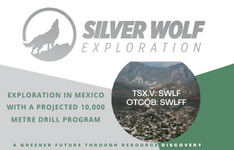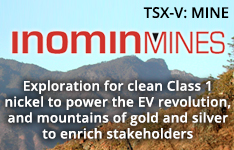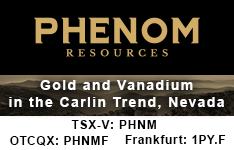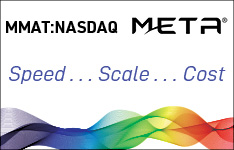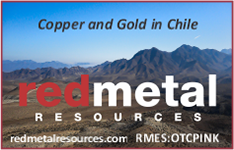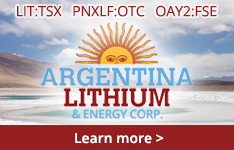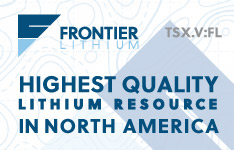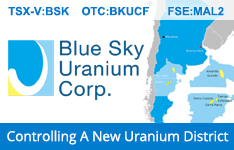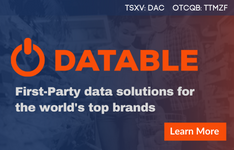Streetwise Reports: Frank, thanks for joining us today. Gold has been trading more or less sideways all year. Do you think it's going to rally into year-end?
Frank Holmes: I think gold is one of the great trades, particularly the gold stocks, and for several reasons. But let's talk about gold itself. For the past 21 years, 80% of the time gold has been bullish and has outperformed the S&P 500 by 250%. Take a look at the Consumer Price Index (CPI) numbers this year, that I believe are greatly understated at 4%–4.5%. If you use the algorithm used in 1980 when interest rates were at 20%, it would suggest that inflation should be 14% today. So you mean to say inflation is running between 4% and 14% and I can borrow a 10-year government bond at 1.5%? That's negative real interest rates at an all-time high, suggesting gold should be $4,000, never mind when we take a look at previous money printing. I think that gold is greatly lagging and is one of those catch-up trades that is going to happen.
Now let’s look at what some call “digital gold,” or Bitcoin. With Bitcoin and Ethereum, it's been active Millennials who have been really important in the overall capital markets of speculation. A lot of Bitcoin diehards are like goldbug fanatics; they both read from the same old testament of history, government money printing. The thought leaders behind Bitcoin are very much caught up with the destruction by money printing of our country's currency. So the difference I've seen is that the Bitcoin Millennials are like strike lawyers looking for the big killing to make a big score, whereas the gold investor is much more like a defense lawyer, about asset allocation and protection from the ravages of currency devaluations.
When I look at the two of them, Bitcoin and gold, I ask why investors ought to have one or the other. Well, Millennials have led this bull market. We saw this in the U.S. Global Jets ETF (JETS), and we're seeing this also in Bitcoin enthusiasm. But I think that, as a conservative money manager, the volatility of gold is substantially less than Bitcoin or Ethereum. GATA [Gold Anti-Trust Action Committee] believes gold is being suppressed by the G7 finance ministers as a functioning cartel, and I used to laugh about that, but now, the fact that they've been able to push through a flat tax of 15% for all companies means they are functioning like a cartel and, therefore, suppressing while they're continuing the money printing. That just means gold is going to have a bigger pop. If real estate is up 19–20% then gold is definitely undervalued.
Then when we look at the gold stocks, we look at a universe of 100 producers around the world, and it's a record number that have free cash flow. Even though gold has been fluctuating roughly between $1,700 and $1,850 per ounce, the gold producers are actually in a much stronger position. I know our quant-based Go Gold and Precious Metal Miners ETF (GOAU) has far outperformed the overall universe of the VanEck Junior Gold Miners ETF (GDXJ:NYSE.ARCA) by a wide margin because it focuses on those companies that have that high gross margin and high free cash flow.
SWR: How has GOAU been able to outperform the GDXJ?
FH: The GDXJ follows a basic index of market caps. With GOAU, we have focused on cherry picking — or high grading, to use the expression in gold — those companies that have several key factors. They have to be very inexpensive on a relative enterprise value basis. They have to have revenue last quarter growing faster than the previous four-quarter average and cash flow last quarter growing faster than the previous four-quarter average, so they're showing relative growth or cost control. And they have free cash flow to give them more interest. When we look at these factors, out of 100 names, it's always challenging to get 25 names. When it comes to these stocks, it's really about revenue per share and growth per share.
Then you have the royalty and streaming companies on top of that. We believe they have a superior business model because they have high gross margins, for one. The easiest way to see that is Franco-Nevada Corp. (FNV:TSX; FNV:NYSE), which has $24 million ($24M) of revenue per employee on royalties; the average of Barrick Gold Corp. (ABX:TSX; GOLD:NYSE) and Newmont Corp. (NEM:NYSE) is probably $600,000 per employee. So royalty companies are historically much more efficient and have the ability, with any rise in the price of gold, to pay out rising dividends.
You've seen Wheaton Precious Metals Corp. (WPM:TSX; WPM:NYSE) and Franco-Nevada, for example, have a very positive tilt as gold rallies in that they're going to share a bigger dividend distribution. So we have a greater concentration in Franco-Nevada, Wheaton Precious and Royal Gold Inc. (RGLD:NASDAQ; RGL:TSX) within the GOAU ETF. I think that that's been a factor that's helped this particular fund outperform. We rebalance every quarter. With the three big royalty companies, if one outperforms the other, then at the quarter-end we'll sell some to buy the other.
Each quarter we don't know which companies are going to outperform, but we know overall the royalty companies have a superior business model. That's been the thought process there, and it's called mean reversion.
A lot of the holdings in GDXJ have mergers and takeovers and share distributions: financings to develop assets that never really develop and mergers that are never really accretive on a per-share basis. So I think we have a smart suite of factors that are really rewarding those companies that have the best value metrics on a per-share basis, quarter over quarter and year over year.
SWR: Everybody thinks of you as a gold person, but, in addition, over the last couple of years, U.S. Global Investors has launched the U.S. Global Jets ETF, which focuses on the global airlines industry. And now you're going to be adding another ETF, the U.S. Global Sea to Sky Cargo ETF (SEA), which will launch in mid- to late-November, providing access to global marine shipping and air freight industries. Why shipping and cargo? What made you take notice of this area and decide to jump in?
FH: There's a big supply and demand imbalance right now. I see that a lot of the supply imbalance has to do with European Union and United Nations' climate change policies. They've created massive imbalances of replacing energy. After shutting down all the nuclear reactors in Germany, all of a sudden the economy turns around and the price of coal explodes on the upside. There's a shortage of electricity. It has not brought onstream enough wind farms and solar farms or natural gas to replace the demand for 7.5 billion people. France hasn't had this problem because it hasn't shut down its nuclear reactors.
We've also seen part of the green policies not allowing higher sulfur content, low grade oil, which is used for moving big ships around the world, which kept them from going into various ports. So you've all of a sudden shrunk by 25–30% the ships able to move product around. Many of these policies are faster at cutting anything with a carbon footprint than they are at being moderate. These policies are creating an imbalance of demand and supply. What they've told everybody short term was it was due to COVID. So along comes COVID, the world's closed down and now, when we get people going back to work and traveling again, you witness this normal pent-up demand, and then you hit all this money printing that starts getting deployed. During that period, the ships cannot move product.
You have all these other imbalances for energy. So I think that climate change is a recipe for higher inflation. They might be able to improve it short term by movement of certain products, but I know in my experience in the cryptocurrency mining business, via Hive Blockchain Technologies, we've had challenges I wrote about a year ago getting things from China. We talked about it long before it became mainstream, like with chip shortages for the car manufacturers. Now we see steel prices taking off, copper prices taking off, shortages of car manufacturing, shortages of chips to be able to complete the cars. Therefore, price inflation is up 25% for secondhand cars.
So coming back, when you take a look at this imbalance, it says that this industry is going to have pricing power, and it reminded me of the JETS ETF. When I created JETS, I had noticed, after 2008 and 2009 many airlines had just come out of bankruptcy—everyone but Southwest Airlines had some type of bankruptcy or financial problem but they were also functioning—a third of the flight options you had to travel around the world had dropped. You just didn't have the options you had before, and the price of your tickets doubled. I said, well, if I'm going to get into the ETF business, this industry has pricing power. Then I did the analysis and found out that the airlines have this thing called ancillary fees and they were going to grow rapidly, which they did. Ancillary fees include charging for your bags and changing your flight ticket. Every time you made a change, a $200 trade, all of a sudden this business and the airlines credit card business exploded and were big profit centers.. So I said this is a good time because they have the wind in their sails; it's not in their face now. They've come out of bankruptcy.
So now we come to cargo shipping. Similar to JETS, the wind is in their sails now. There are imbalances around the world. The world has massive money printing. Global demand is surging. The Purchasing Managers’ Index (PMI) is surging, but even so, they can't move basic commodities or finished products around like they used to. You have to wait six months to get a Samsung refrigerator. So when you dig into it, you say, wow, there's no one really doing this using the quant metrics we look at in our product lineup. In our analysis during the COVID crisis, the best performing airlines were cargo airlines.
The airlines that stopped flying passengers and instead were using their whole belly to move cargo benefitted the most. So we created this model of 20% airlines cargo only and 80% dry ships. We think that this trend is going to continue. As more climate change policies come in place, it's going to create more bottlenecks and give shipping of products and services more pricing power.
It's also a way for our audience to play global resources. If you don't want to play one commodity against the other, or this, one easy simple way is to play global shipping.
SWR: In other words, this is one of these bad news is good news situations for investors in this space.
FH: Absolutely.
SWR: Would you talk a little bit more about the air cargo companies and which ones you expect to benefit from this increased consumer demand?
FH: We really saw air cargo companies benefit during COVID because products, like face masks and gloves, had to be moved, and they had to get them from Asia to North America and Europe. The two biggest, as everyone knows, are FedEx Corp. (FDX:NYSE) and United Parcel Service Inc. (UPS:NYSE), but then there are private companies that are huge in cargo as well. There's Qatar Airlines and Emirates. They're huge in cargo. So when we look at that universe of cargo airlines, there are other public companies and they've just been great performers, like Turkish Cargo. Particularly out of Asia, you have EVA Air Cargo. These businesses, I believe, will continue to boom.
Take a look at Zara, one of the biggest companies in the retail clothing businesses of the world. Its business model is to knock off the latest fashion designers before their products get to the market and get them out at a cheaper price. Well, one of the ways Zara does that is by shipping everything by airplanes. They have to use cargo planes for supply management. If you take a look at that business, the pricing power for these cargo airlines is just going to continue to grow.
SWR: Tell us about the dry shipping component to the ETF.
FH: Goods like Samsung TVs and refrigerators are moved by dry ship. One of the big issues has been that the ships that they had in Europe were able to ship over from China coming to here, but they're going back empty because we're not exporting like we were. When we turn around and start going back with more full ships, then they're going to make more money on these ships.
SWR: I understand one of the top holdings will be A.P. Moller-Maersk A/S (AMKBY:OTCMKTS), the Danish shipping company, and Reuters recently reported that its final Q3/21 earnings tripled to $6.9 billion. So is that one of the companies that you will be including in the ETF?
FH: Absolutely. Bloomberg analysts in September forecast the company’s net income will not only be a record for Maersk, but for ANY Denmark-listed company. This is all thanks, of course, to unheard-of shipping rates.
Not only that, the imbalance is going to continue. It's not short term. I know the Federal Reserve keeps saying it's just a short-term imbalance, but it's just not true. It's an imbalance that's not going away, especially when you add the green movement. I'm a big believer of clean air and clean water, but investors must also be aware of the accountability standards held for the scientists or engineers who are making these policy decisions; there's no accountability if they're wrong. If you're an engineer building a bridge, then you better have insurance in case you're wrong because you'll get sued. But you don’t see these scientists being sued if they are wrong about their climate stances. In my opinion, many of their policies are esoteric, idealistic policies, and these people are not held accountable. There seems to be a full court press with more and more layering on of these policies. Because of that, I think we're going to have continuous inflation. I think it's very inflationary, and I think this is a way to protect yourself as an investor.
If you believe the 27 countries are working like a cartel and they're going with modern monetary theory, that's to print as much money as possible, it just means that we're going to have a lot of people with cash looking for products and services, and there are going to be bottlenecks in getting them to you. Air Canada, for example, has done exceptionally well with Cargojet. That's all it does, nothing but cargo. So we think these are simple names that people can think of that are going to do well.
SWR: Is there anything else you'd like to tell our readers that we haven't talked about?
FH: I think that some of your readers have bought HIVE Blockchain Technologies Ltd. (NASDAQ: HIVE), and HIVE has done exceptionally well, so I think it is worth mentioning briefly too. For your readers who are unfamiliar with HIVE, it is a cryptocurrency miner, and was the first to go public back in 2017 on the TSX.V, but is now available on the NASDAQ Exchange as well. So far, touch wood, we've been the most profitable of the public crypto miners because we're the only one that mine both Ethereum and Bitcoin. The digital asset space continues to grow, and that includes the companies mining these coins, like HIVE. Hopefully, HIVE continues in that growth cycle.
SWR: We appreciate your time today, Frank. Thank you.
Frank Holmes is CEO and chief investment officer at U.S. Global Investors, which manages a diversified family of funds specializing in natural resources, emerging markets and gold and precious metals. In 2016, Holmes and portfolio manager Ralph Aldis received the award for Best Americas Based Fund Manager from the Mining Journal. In 2011 Holmes was named a U.S. Metals and Mining "TopGun" by Brendan Wood International, and in 2006, he was selected mining fund manager of the year by the Mining Journal. He is also the co-author of The Goldwatcher: Demystifying Gold Investing. More than 30,000 subscribers follow his weekly commentary in the award-winning Investor Alert newsletter, which is read in over 180 countries. Holmes is a much sought-after keynote speaker at national and international investment conferences. He is also a regular commentator on the financial television networks CNBC, Bloomberg, BNN and Fox Business, and has been profiled by Fortune, Barron's, The Financial Times and other publications.
Disclosure:
1) Patrice Fusillo conducted this interview for Streetwise Reports LLC and provides services to Streetwise Reports as an independent contractor. She owns, or members of her immediate household or family own, shares of the following companies mentioned in this article: None. She is, or members of her immediate household or family are, paid by the following companies mentioned in this article: None.
2) The following companies mentioned in this interview are billboard sponsors of Streetwise Reports: None. Click here for important disclosures about sponsor fees. The information provided above is for informational purposes only and is not a recommendation to buy or sell any security.
3) Frank Holmes: I, or members of my immediate household or family, own shares of the following companies mentioned in this article: HIVE. I, or members of my immediate household or family, are paid by the following companies mentioned in this article: N/A. My company has a financial relationship with the following companies mentioned in this interview: HIVE Blockchain Technologies. Funds controlled by U.S. Global Investors hold securities of the following companies mentioned in this article: Royal Gold Inc., Wheaton Precious Metals, Franco-Nevada, Barrick Gold, Maersk. I determined which companies would be included in this article based on my research and understanding of the sector. I had the opportunity to review the interview for accuracy as of the date of the interview and am responsible for the content of the interview.
4) The interview does not constitute investment advice. Each reader is encouraged to consult with his or her individual financial professional and any action a reader takes as a result of information presented here is his or her own responsibility. By opening this page, each reader accepts and agrees to Streetwise Reports' terms of use and full legal disclaimer. This article is not a solicitation for investment. Streetwise Reports does not render general or specific investment advice and the information on Streetwise Reports should not be considered a recommendation to buy or sell any security. Streetwise Reports does not endorse or recommend the business, products, services or securities of any company mentioned on Streetwise Reports.
5) From time to time, Streetwise Reports LLC and its directors, officers, employees or members of their families, as well as persons interviewed for articles and interviews on the site, may have a long or short position in securities mentioned. Directors, officers, employees or members of their immediate families are prohibited from making purchases and/or sales of those securities in the open market or otherwise from the time of the decision to publish an article until three business days after the publication of the article. The foregoing prohibition does not apply to articles that in substance only restate previously published company releases. As of the date of this interview, officers and/or employees of Streetwise Reports LLC (including members of their household) own securities of Franco-Nevada, Wheaton Precious Metals, Royal Gold, Barrick Gold and HIVE Blockchain Technologies, companies mentioned in this article.








